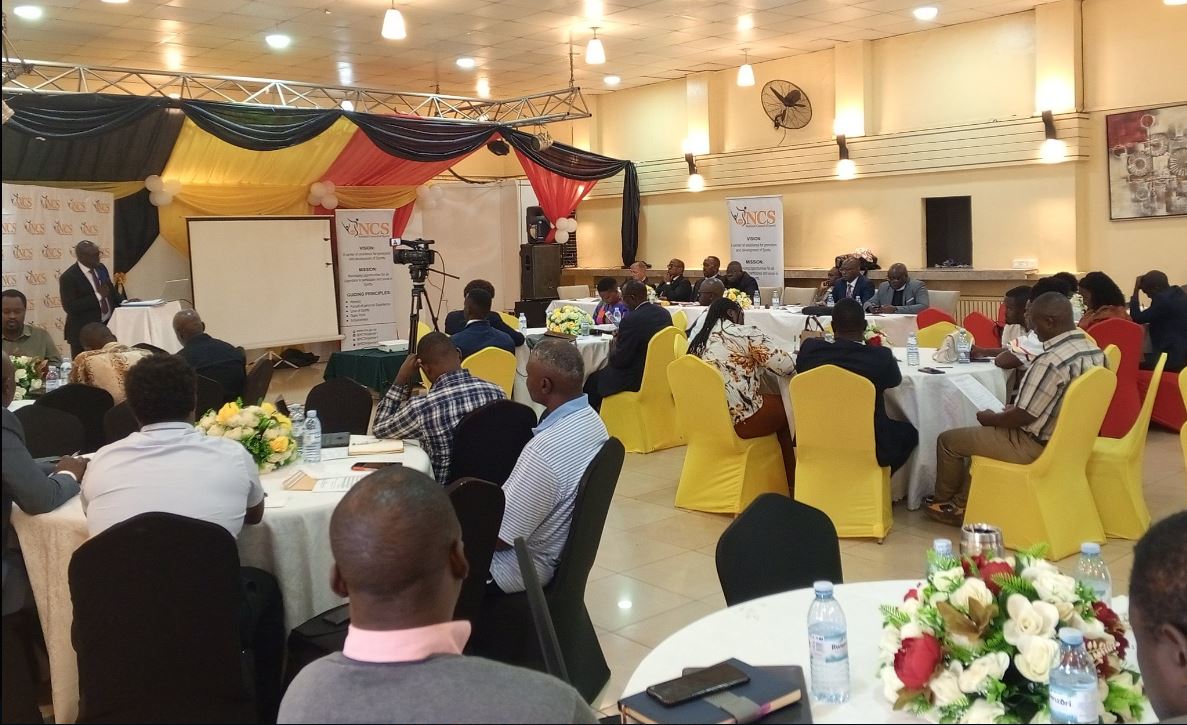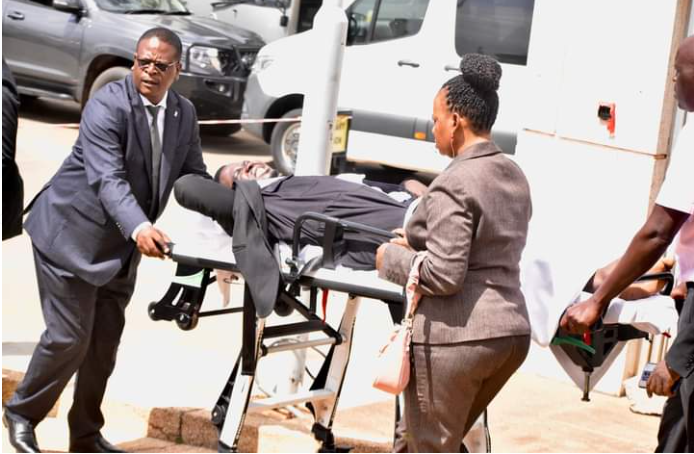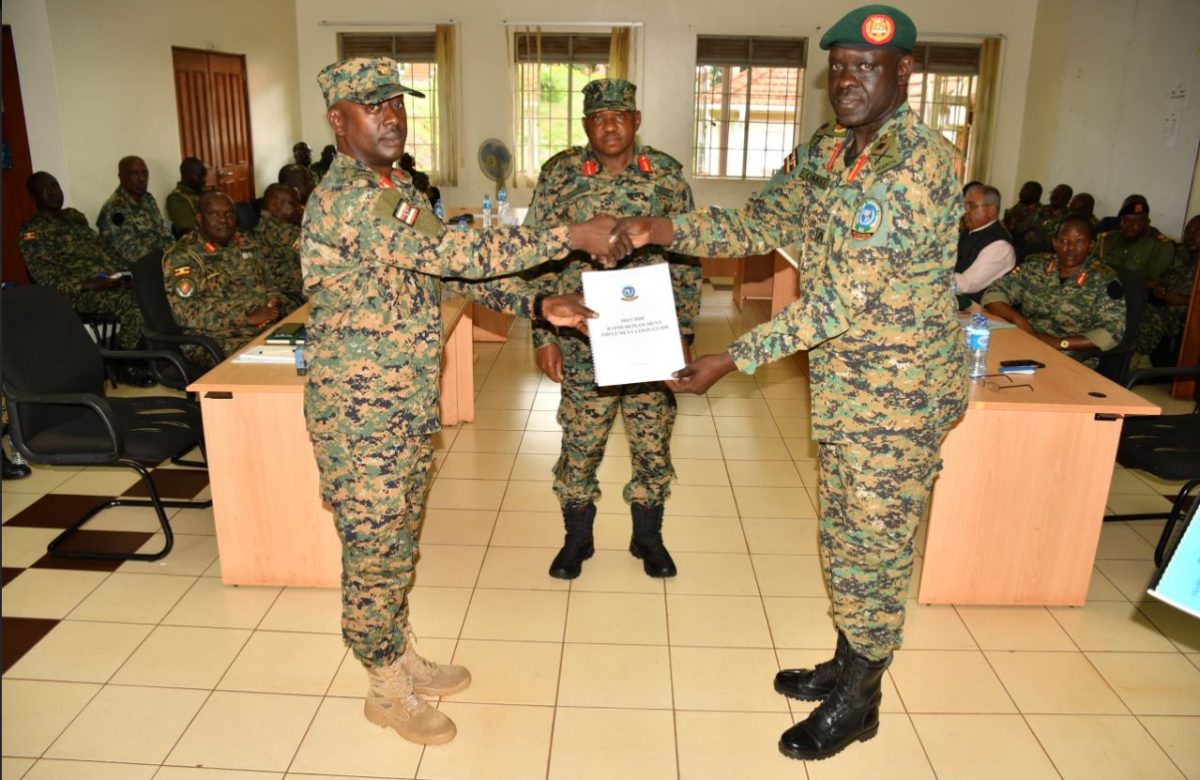
Opinion: A critical review for clarity and effectiveness of National Sports Regulations
- OPINIONSPORTS
- November 6, 2024
- No Comment
By Emmanuel Sekago
As the Ministry of Education and Sports, in conjunction with the Attorney General’s Office, moves toward finalizing the National Sports Regulation CAP 151 to support the National Sports Act 2023, it’s crucial to ensure the regulations are both clear and practical.
The consultative meeting held on Wednesday, November 6th, 2024,at Copper Chimney brought national federations and associations presidents and secretaries plus Chief executive officers together to review the draft.
However, Looking at the draft regulations seen by wallnetnews need adjustments to better align with the practical needs of sports bodies and stakeholders.
Starting with Regulation 2, the designated commencement date of September 8th, 2024, seems impractical since the regulations are still under review. It would be more appropriate to establish this date once the regulations are formally adopted.
In Regulation 3 (Interpretation), essential terms such as “community club” need clear definitions. As these clubs are integral to grassroots sports, clarity on what constitutes a community club is essential for effective governance.

Moving to Regulation 4, the provision for declaring a national sports discipline raises questions. Many sports like athletics and aquatics comprise multiple disciplines.
Will each discipline require separate applications for declaration? For example, within aquatics, we have swimming, diving, open water, masters, artistic swimming, and water polo. It would be more practical to clarify whether each discipline requires an individual declaration.
Regulations 5, 6, and 7 address the application process for national sports associations and federations, yet the forms and criteria mentioned in Schedule 2 are missing. These must be provided to offer a clear framework for what constitutes a national sports association or federation.
Regulation 8 stipulates an annual renewal fee of UGX 3 million for certificates issued by the National Council of Sports (NCS). This is burdensome for many associations, particularly smaller ones, and could discourage participation.
A four-year renewal cycle, similar to that of NGOs under the NGO Act, would provide more financial and administrative relief.
Regulation 9 places appeals under the jurisdiction of the Minister responsible for sports. Given the volume of potential appeals, this could overwhelm the Minister’s office.
An independent appeals or adjudication committee, like that provided under the NGO Act, would be better suited for this role.
Regulation 13 addresses access to the register of national sports associations and federations but requires an inspection fee of UGX 200,000. Such a fee limits access to information and transparency.
This register should be freely accessible on the NCS website, akin to the public NGO register maintained by the NGO Bureau.
Regulation 15 requires national sports associations or federations to apply to NCS for participation in international competitions. Given that these competitions are governed by international bodies (e.g., the IOC or Commonwealth Games Federation), requiring an application process seems misplaced.
Instead, associations should simply notify NCS and seek clearance for travel, as NCS is not mandated to grant permission for participation.
Regulation 16 outlines competitions but omits major events like the Youth Olympics, Youth Commonwealth Games, Deaf Olympics, and ANOCA Games.
Additionally, under Regulation 16(6), the Uganda Olympic Committee (UOC), supported by respective national associations, is responsible for coordinating qualifiers. It would be prudent to specify that the UOC, in consultation with national associations, will handle entries and participation.
Regulation 17 covers the certification of agents, promoters, and managers. This provision must consider international regulations, such as FIFA’s stringent criteria for agents and intermediaries, to avoid conflicts.
Regulation 18 requires information on beneficiary owners, including passport and visa details. This is confusing since only nationals can govern national sports bodies. Further clarity is needed on why this information is required.
Regulation 20 governs community clubs, but the definition is vague, and Regulation 20(2)(a) stipulates that a club must have at least 100 members and six associations of 25 people. It’s unclear what these associations should represent or how they are composed. More specificity is necessary.
In Regulation 27, safeguarding policies are referenced, which is commendable. However, it’s essential that all institutions, including schools, clubs, and tertiary institutions, are mandated to have safeguarding policies, not just sports academies.
The arbitration fee in Regulation 31 and Schedule 3 is set at UGX 5 million, a prohibitively high amount. Since Section 56 of the National Sports Act requires each party to bear its own costs, this fee should be reconsidered to ensure affordability and accessibility.
Lastly, anti-doping remains unaddressed. Given WADA compliance requirements, a separate set of anti-doping regulations should be created to ensure Uganda meets international standards, and funding for the National Anti-Doping Agency should be clearly outlined.
In conclusion, while CAP 151 holds promise, these recommendations are crucial to ensure that the regulations are clear, fair, and functional, ultimately strengthening the foundation of Uganda’s sports landscape.





